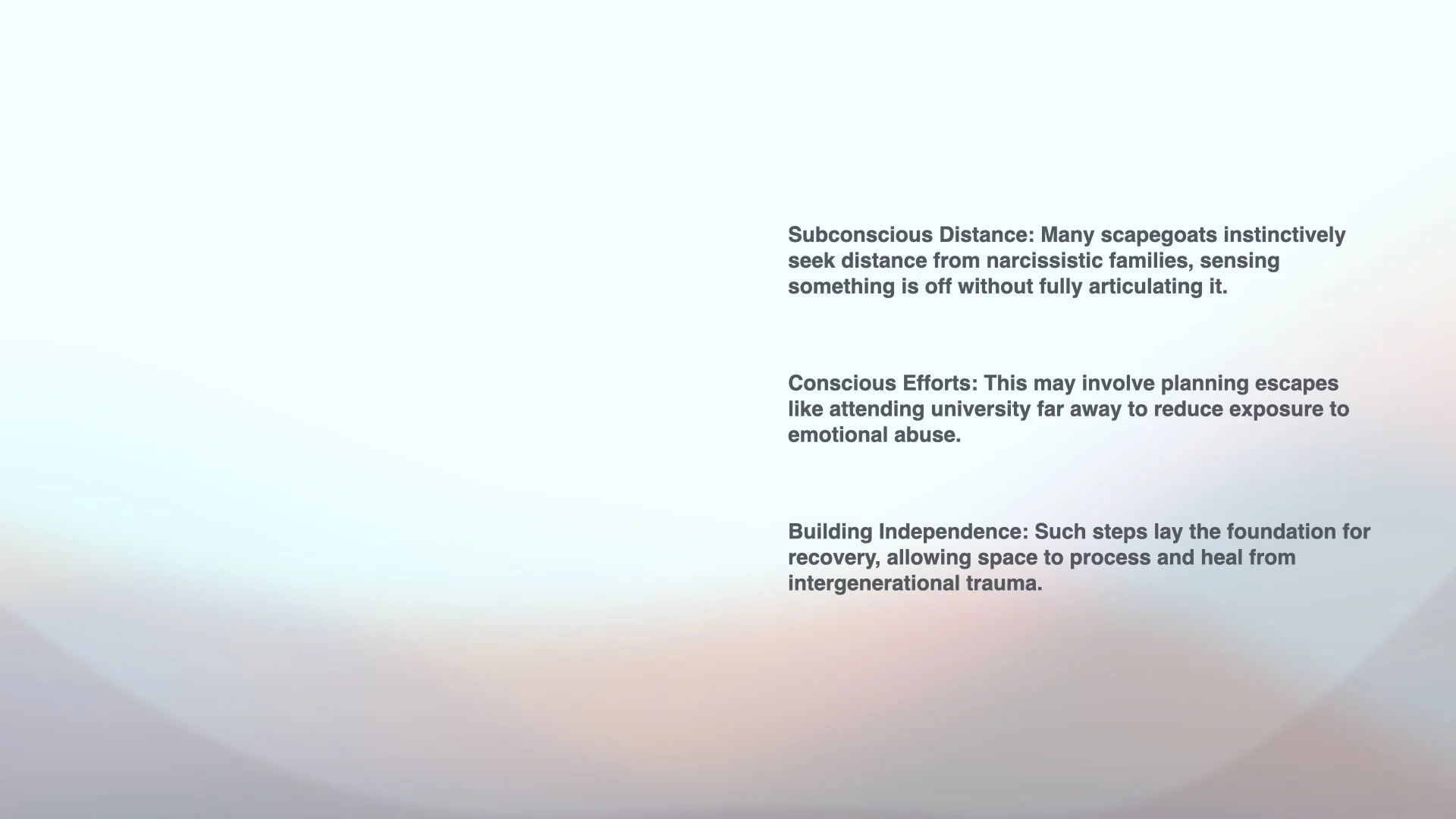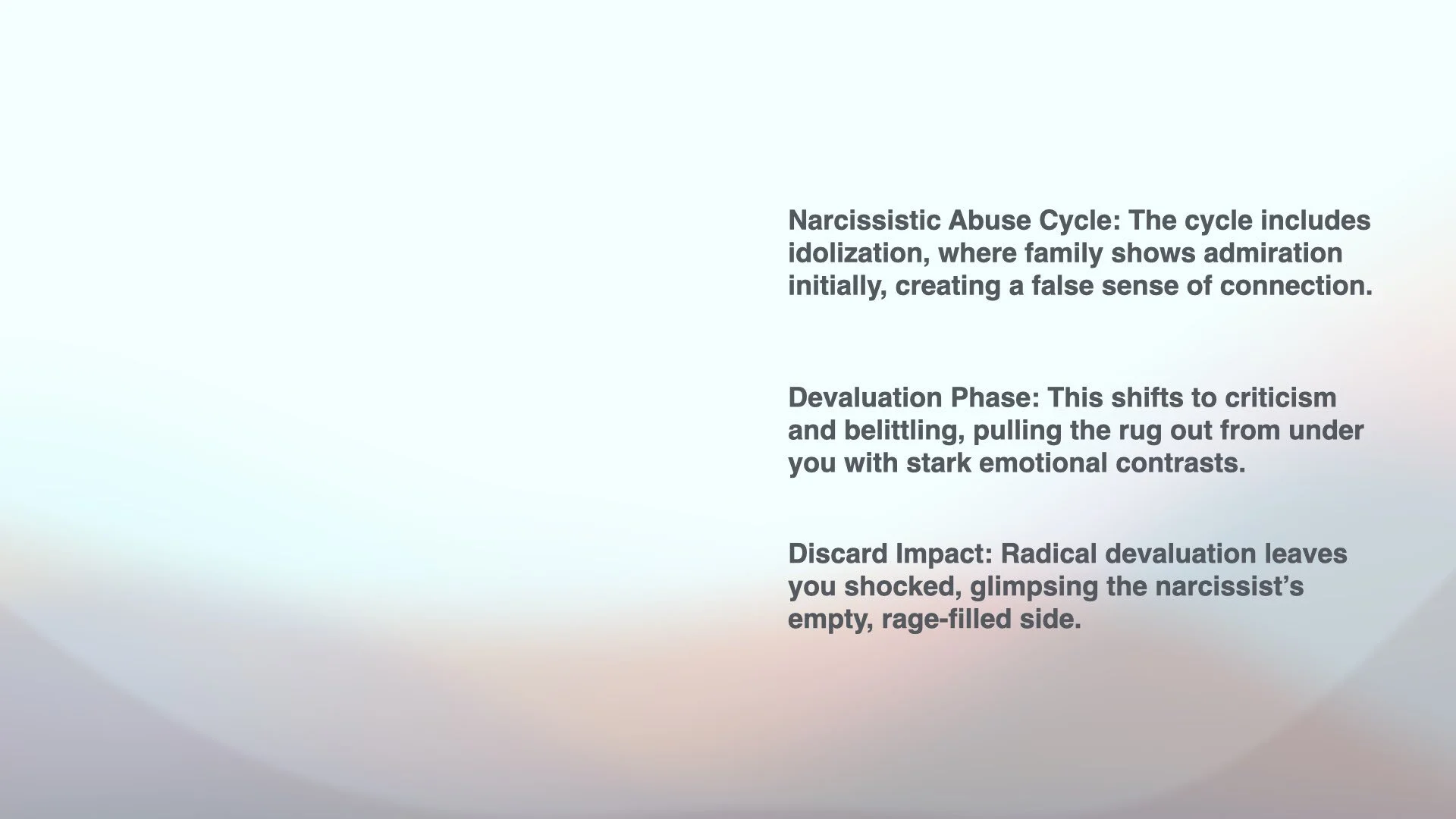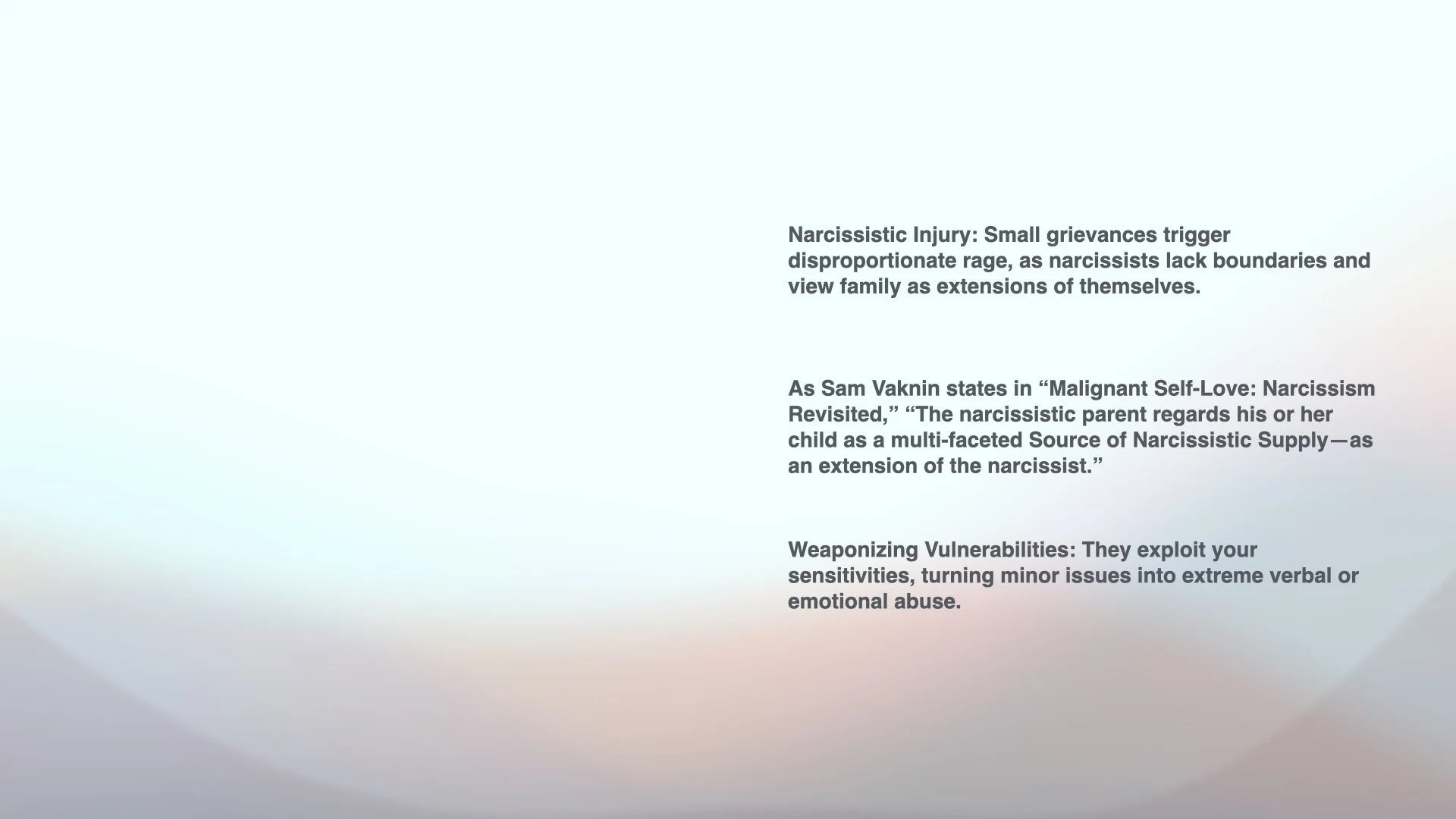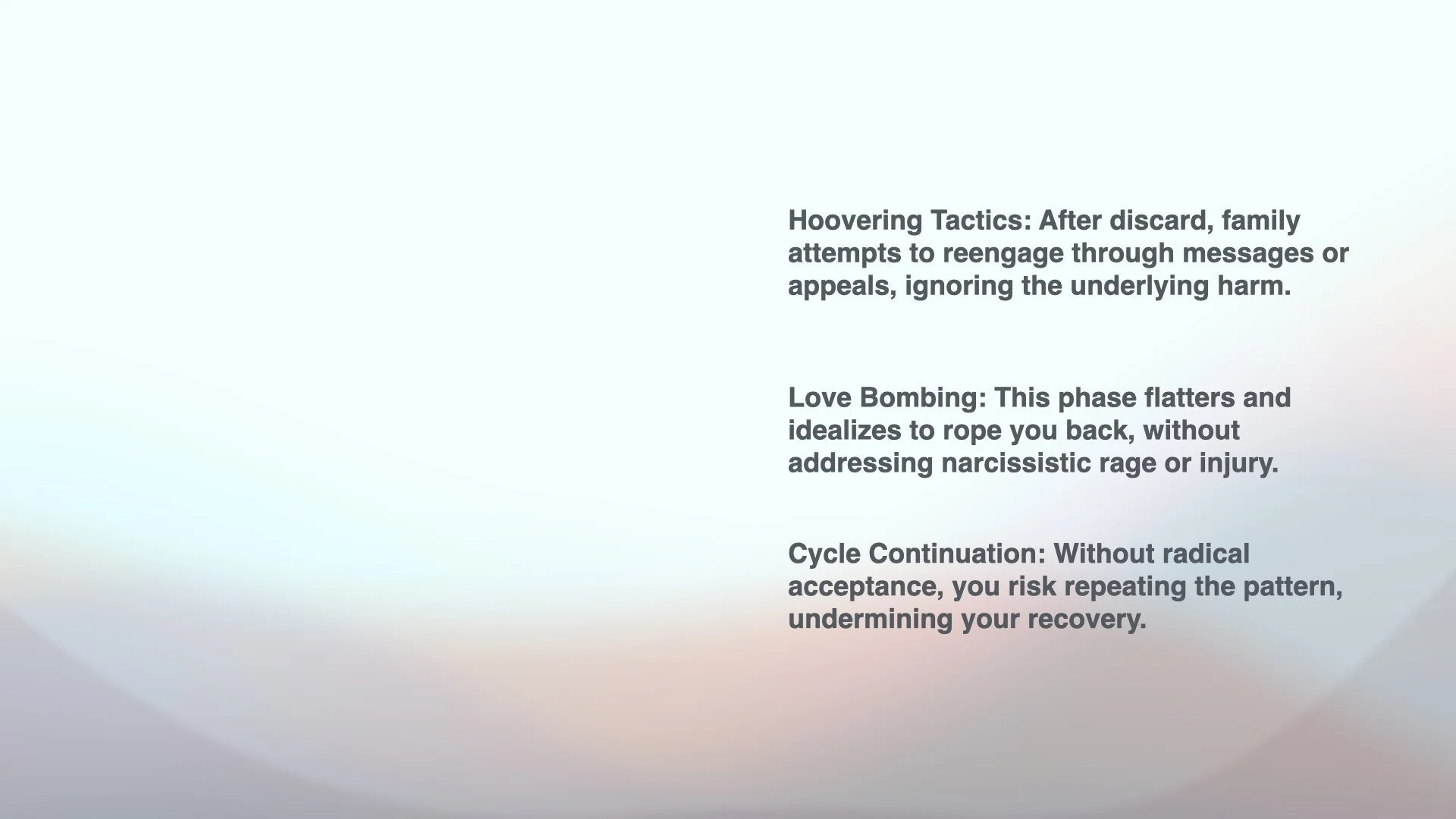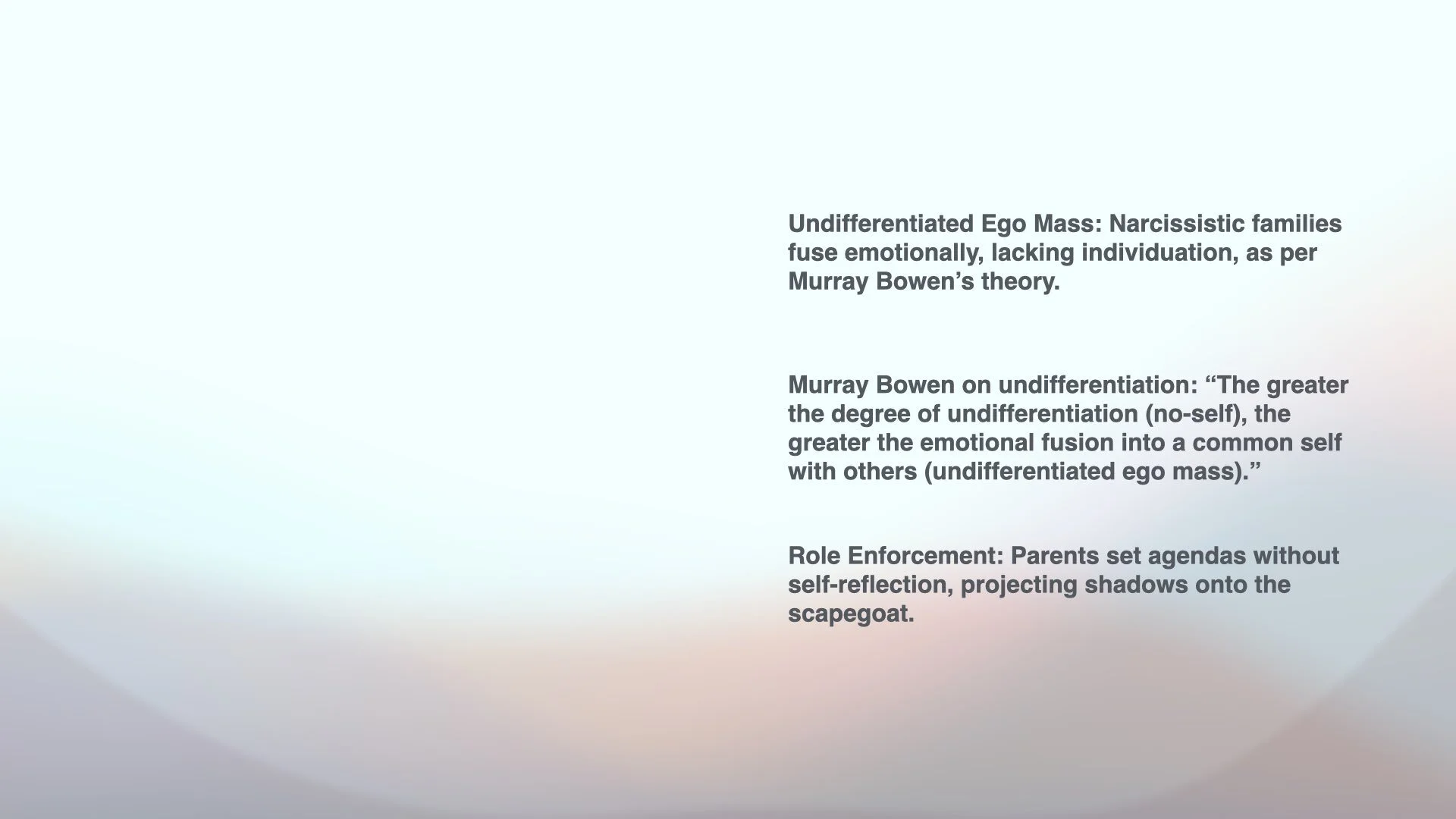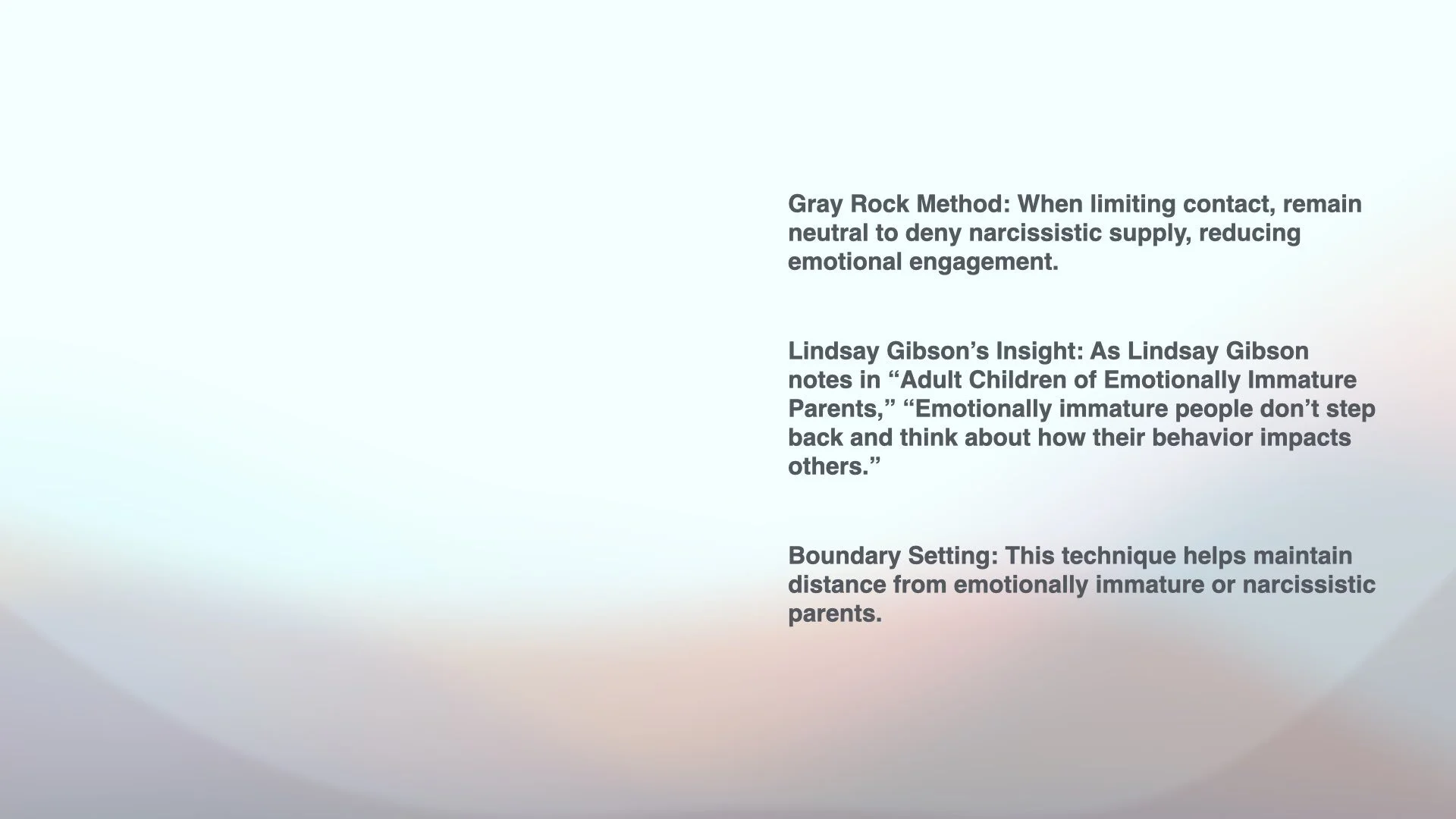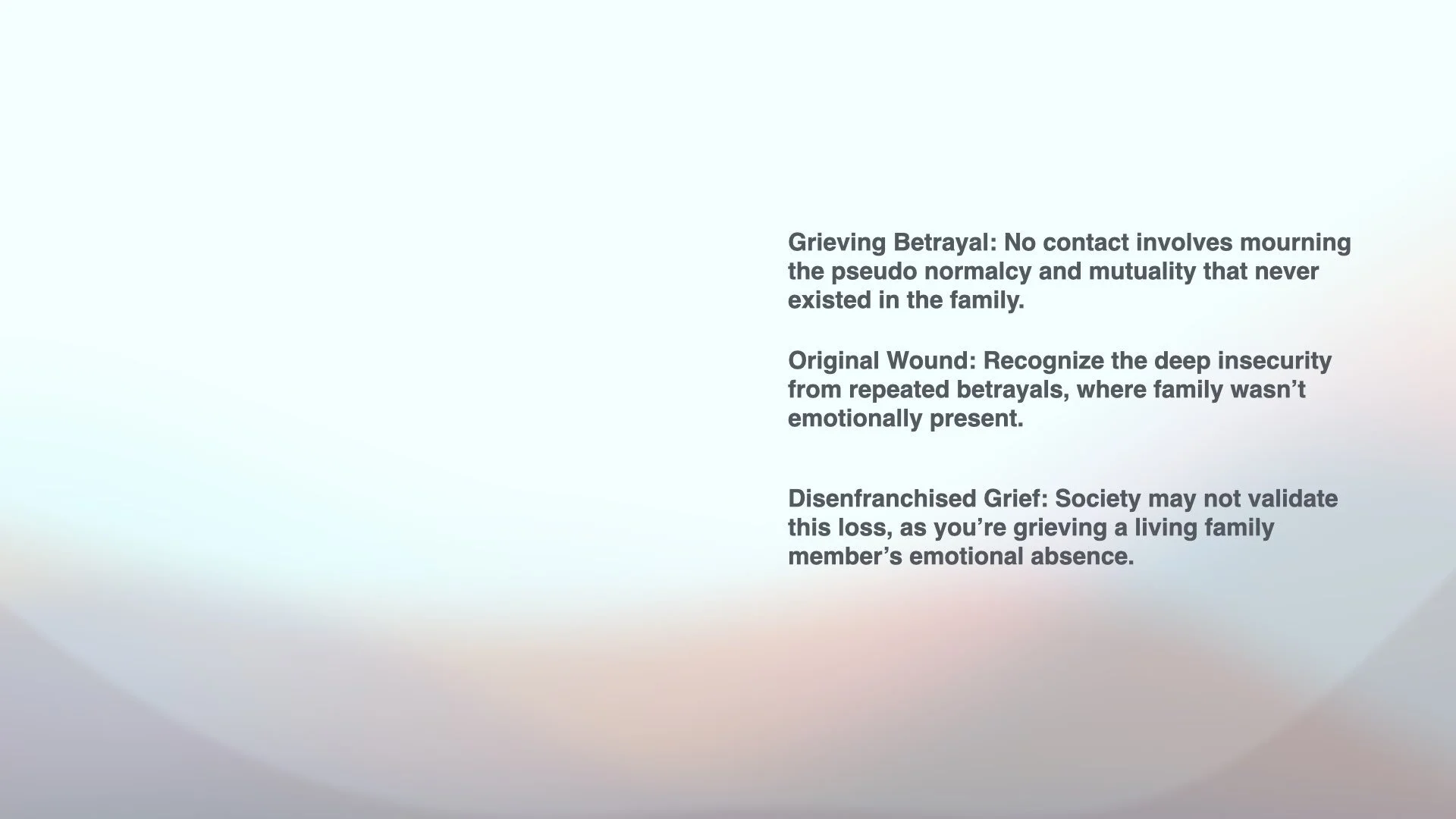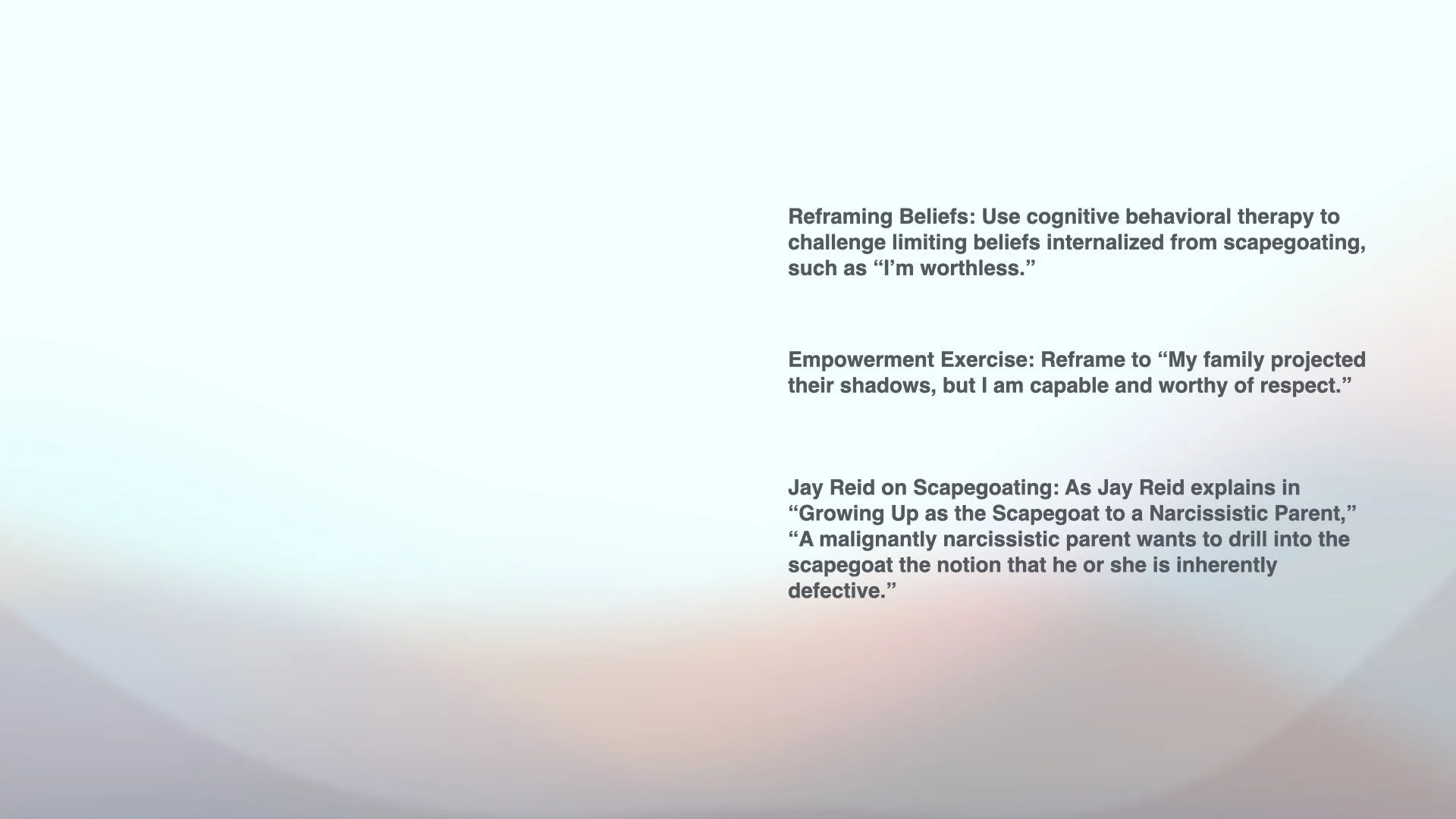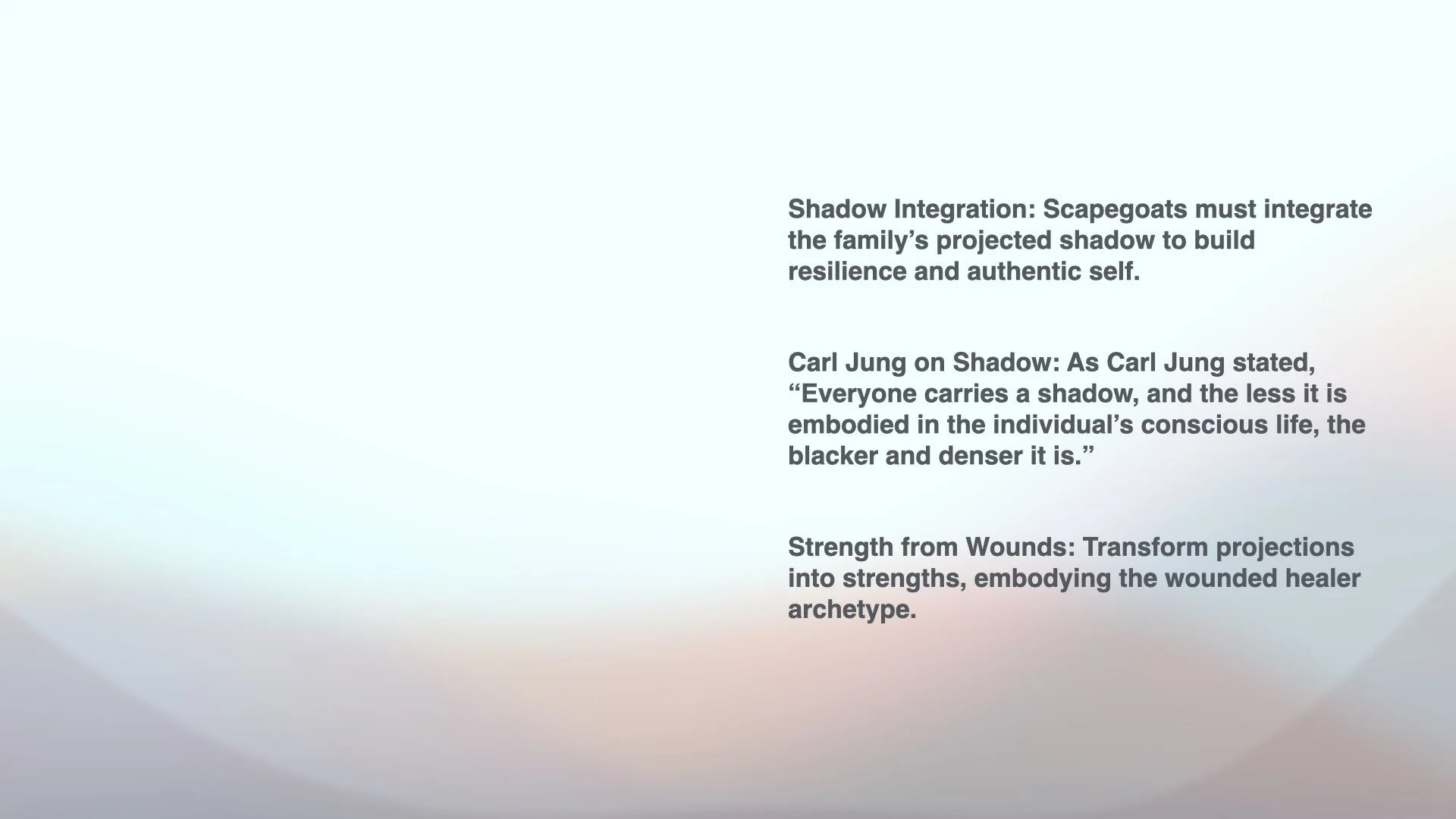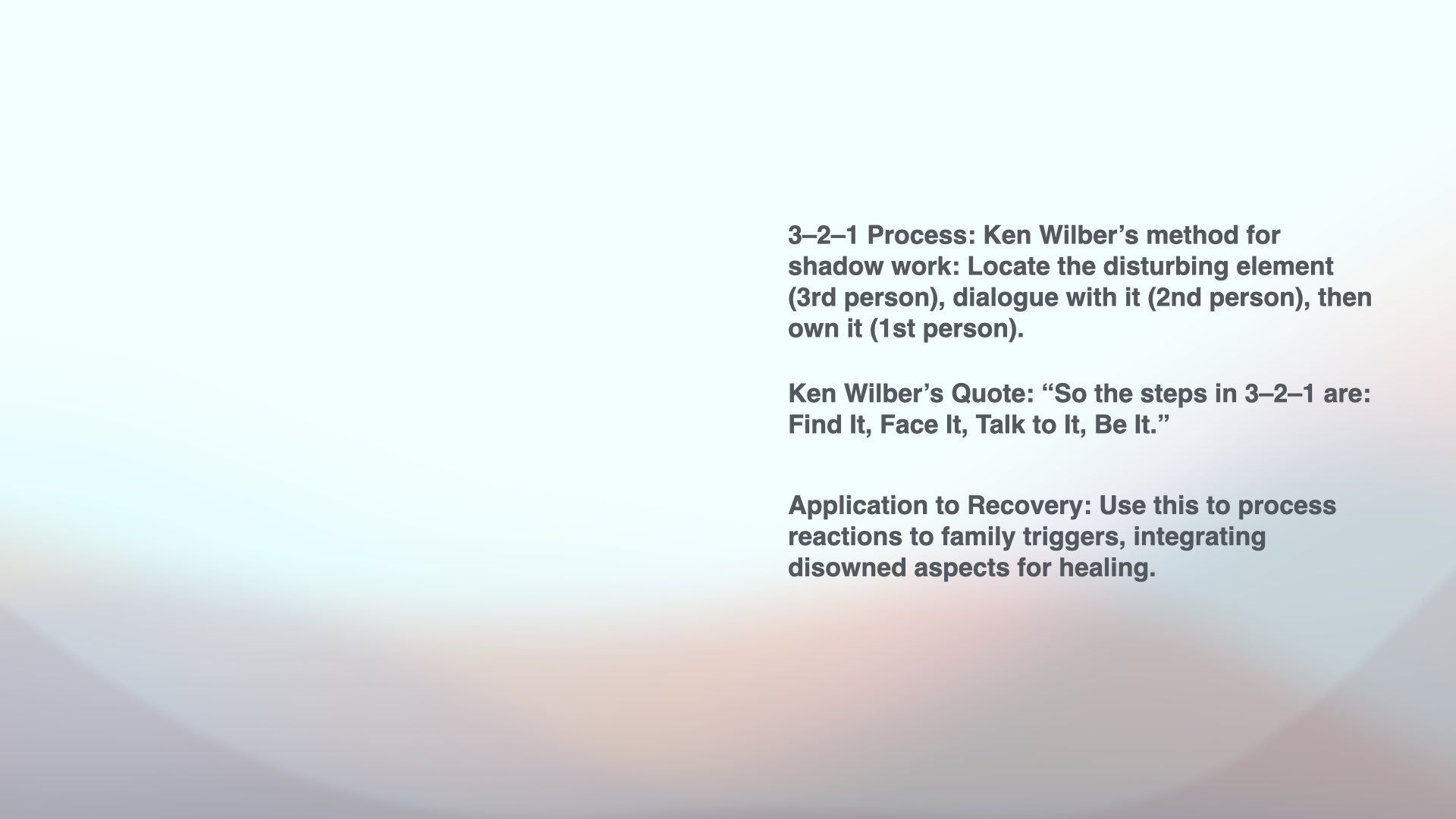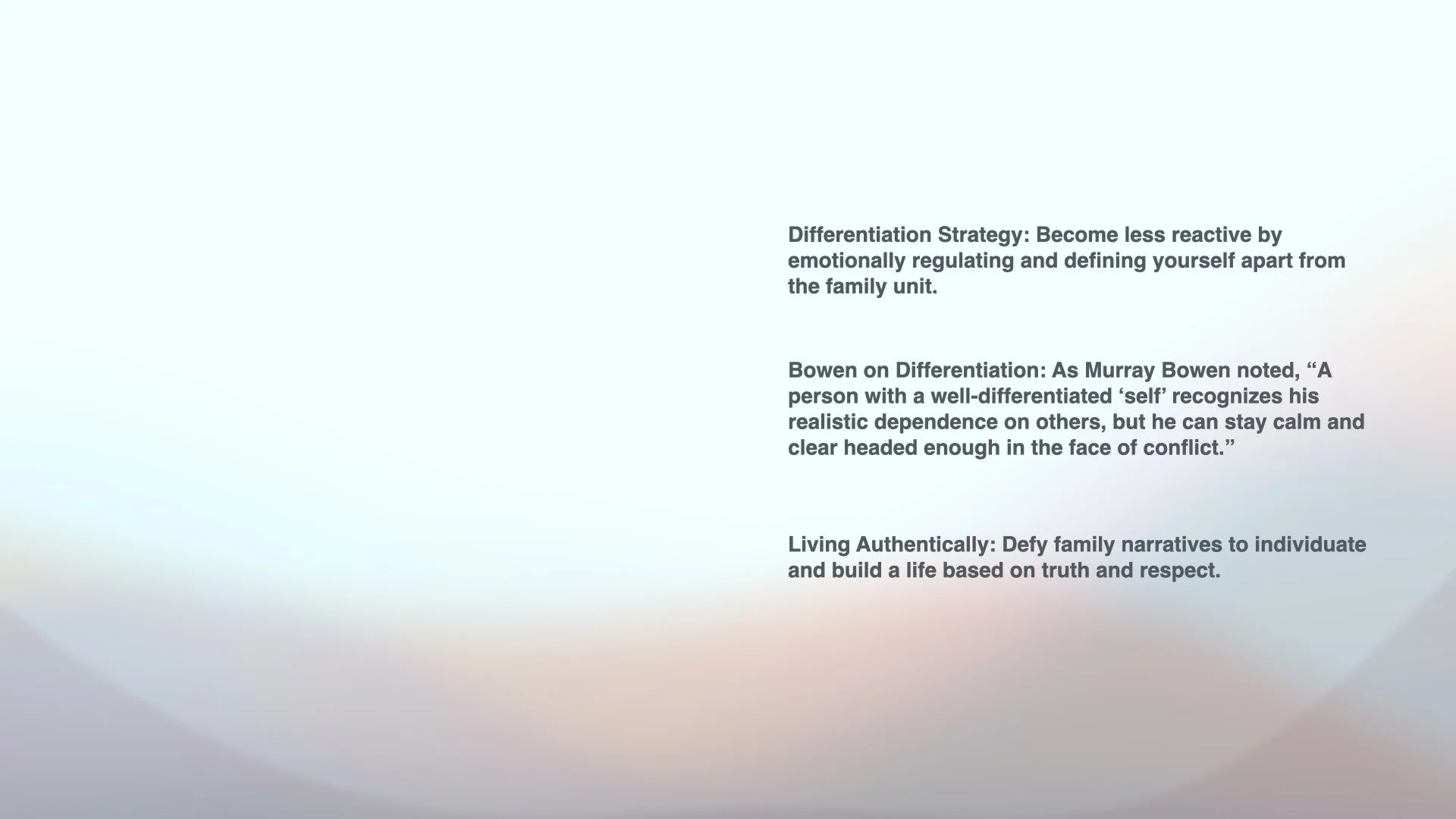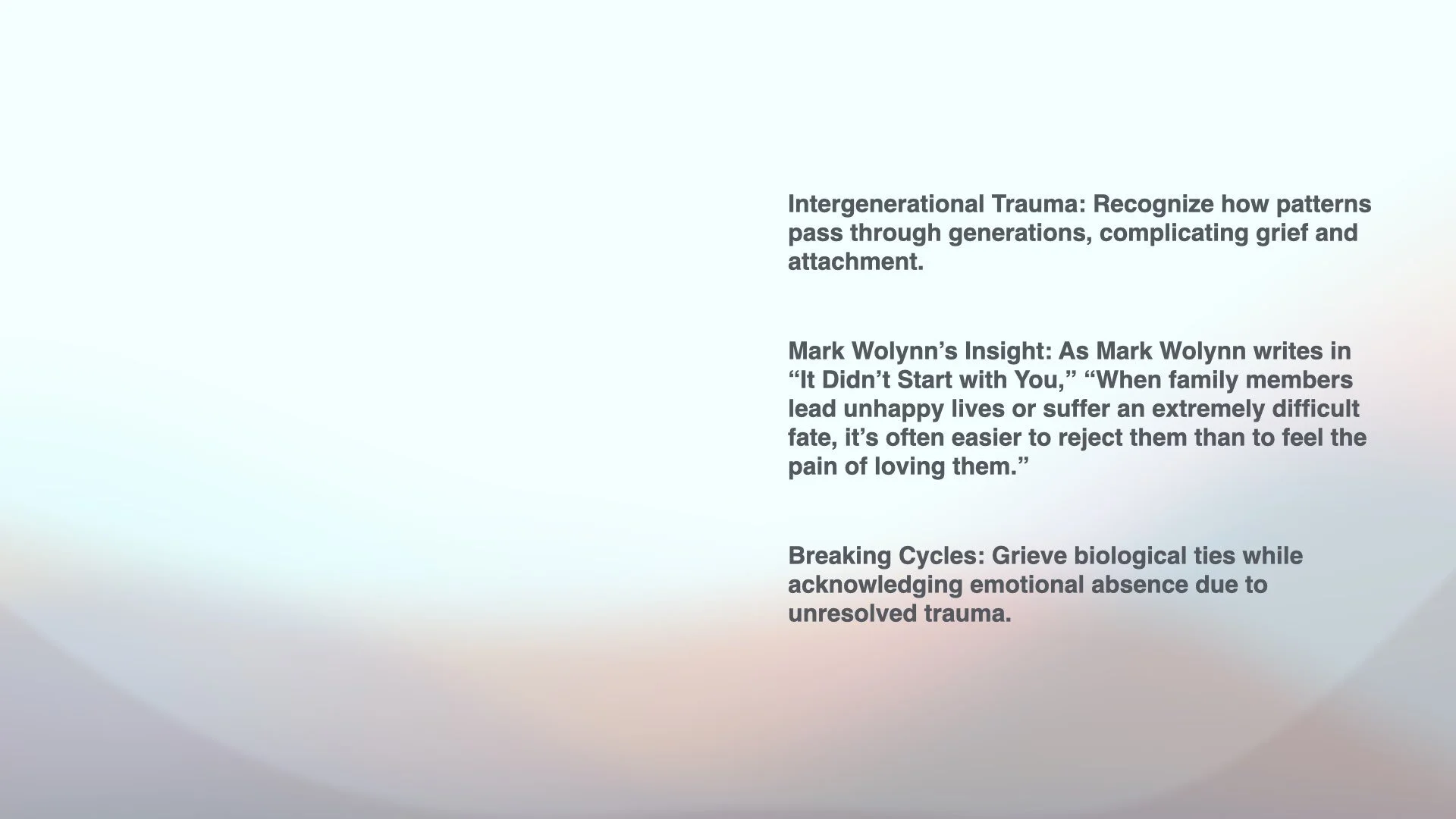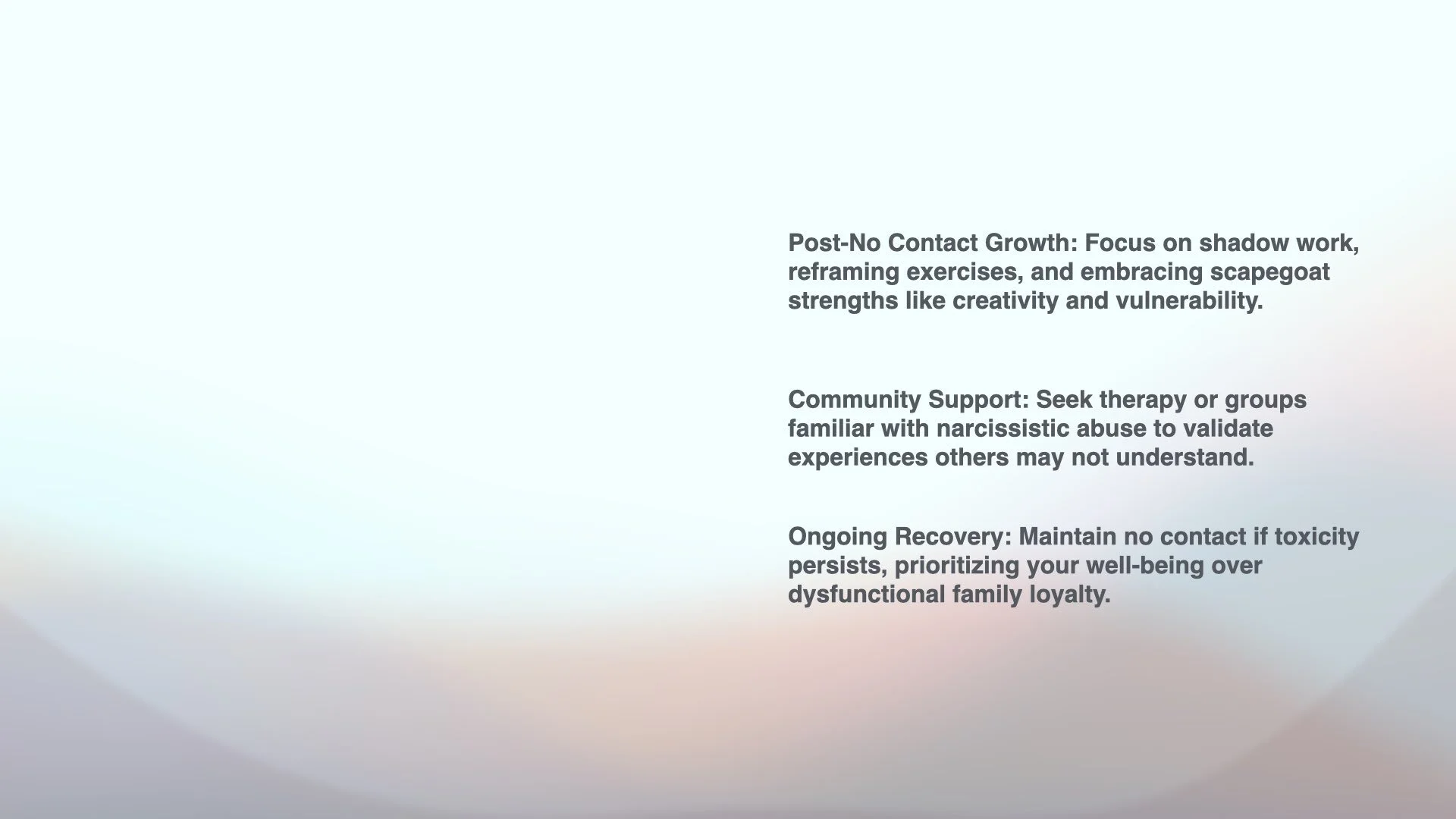Navigating No Contact with Narcissistic Family
The Path to No Contact: Subconscious and Conscious Distancing
When you go no contact with your family, it's likely the case that for many years you might have limited contact subconsciously, like moving away from them, or consciously, waiting for that time to go to school or university. Any way you could get distance from the family was something you were after, just because you didn't want the drama and knew something was off. As a scapegoat, you've perhaps continued to go back to the family, believing there could be change, focusing on positive times and minimizing the negatives.
This cycle repeats, akin to the narcissistic abuse cycle within the family system. Usually, there's idolization: when you come home or with siblings, the first few days are very positive, flattering, and showing admiration. You're put on a pedestal, feeling elated, loved, and believing it genuine. Yet, the devaluation phase appears with a stark difference—they show an entirely different side.
The Narcissistic Abuse Cycle: Idolization, Devaluation, and Discard
In the devaluation phase, the rug is pulled underneath you, leaving you discarded by parents or siblings. It's radical because the idolization felt authentic, but now you glimpse narcissistic injury and rage—people talk about seeing it in their eyes, this empty person, an empty vessel. It's shocking to the core. Typically, that's when most people go no contact or limit contact.
After weeks of shock and anger, without radical acceptance of the family's narcissistic nature, you'll continue the cycle. Anytime you're engaging, you're in that cycle if they're genuinely narcissistic—it's who they are. Following discard, there's the hoovering and love bombing phase: family tries to hoover you back in, sending messages wanting to rope you into the dynamic, never addressing the underlying grievance from their narcissistic rage.
They make a mountain of a molehill—what seemed a small grievance turns into overwhelming outburst. Let's say you're at home, things going well, but you don't put dishes away; it bothers them, leading to extreme outbursts, berating you as no good, lazy, or worthless. They're verbally and emotionally abusive, feeling entitled because they lack boundaries.
Narcissists as Extensions: Fusion and Undifferentiated Ego Mass
A narcissist isn't a fully formed self—you can think of it like their elbow not getting in line, so they straighten it out. They see family as extensions, merging with the world. A healthy ego separates and individuates, but they operate by fusing self with the world, especially family, projecting emotional fusion. This goes back to Bowen and his notion of the undifferentiated ego mass—they create roles, need you in line, set the agenda without self-reflection. It's taken as a given; they're entitled, caring less about your reactions, though they do care in a twisted way.
They pick up on guilt, weaknesses, or sensitivities and weaponize them, making you neurotic around issues. They're a product of that environment, responsible for projecting onto you. How much is them versus you? In the hoovering phase, you might believe different communication could work, especially after gaining knowledge from Lindsay Gibson's work in Adult Children of Emotionally Immature Parents. If not fully narcissistic, perhaps reconciliation; but for pathological narcissism without ownership, you've cycled many times.
Gray Rock, Grieving Betrayal, and Radical Acceptance
When limiting contact, use the gray rock method—staying neutral, understanding they're seeking narcissistic supply. It has to do with them; grieve the family you thought you had isn't what it was. This goes to loneliness, insecurity, betrayal—the original wound. Going no contact reminds you of times family wasn't there, seeking mutuality but finding pseudo reality and pseudo mutuality.
This pseudo normalcy was taken as a given; siblings, golden child, flying monkeys convinced you it was normal. As you wake up, gain knowledge, and radically accept, you're working on grievances and limited beliefs as a scapegoat. You owned the collective shadow—integrate your own, reframing like cognitive behavior therapy. If family treated you as a garbage can, name beliefs: "I'm worthless." Reframe: "My family told me I was worthless, but I am capable, worthy of respect and dignity." Empower the shadow projection.
Shadow Integration and the 3-2-1 Process
Carl Jung talked about unhealthy people unaware of their shadow, projecting onto the world when it's about them. Through therapy, integrate the shadow. Consider the 3-2-1 process from Ken Wilber in A Theory of Everything: An Integral Vision for Business, Politics, Science and Spirituality: React strongly? In a dream, a monster chases (third person, outside you). Dialogue (second person), then own it (first person, aspect of you). If reactive to overweight people, perhaps struggling with your weight—project to avoid facing yourself.
Unhealthy families project onto children. Grieving the scapegoat role makes you strong, resilient. Integrate projections, see as strengths—your wounds become the wounded healer archetype Jung spoke about. Scapegoats are often creative, vulnerable yet strong, like a clean mirror. Family projects to disown shadow.
Living in Defiance: Differentiation and Intergenerational Grief
Live in defiance of family and narcissist—that's moving forward. If accepting they're narcissistic, no exposure; each time cycles abuse, pulls into orbit, lacks differentiation, undermines your life and individuation. Determine for yourself—family's important, but family of origin must base on truth, mutual respect. When nonexistent, walk away.
Grieving is complex: what you didn't have, relationship you thought with family, biology attaching regardless of health. Confusion: biologically family, but emotionally, psychologically absent due to intergenerational trauma. The book It Didn't Start with You by Mark Wolynn explores how it passes generations. Disenfranchised grief: grieving before they pass, their "death," dealing with projections. Most won't understand—friends, professionals might encourage contact, say parents aren't bad.
Conclusion: Lenses for Recovery and Empowerment
Understanding no contact, narcissistic abuse cycle, drawing from thinkers like Carl Jung, Sam Vaknin in Malignant Self-Love, Lindsay Gibson, Jay Reid, and Bowen, offers lenses for this dynamic. Consider shadow work, 3-2-1 process, write limited beliefs, reframe positively, embrace scapegoat strengths.
For deeper tools in narcissistic abuse recovery and scapegoat healing, download my Scapegoat & Narcissistic Abuse Recovery Course Reports + 45-page Healing Toolkit here: https://blaketherapy.ca/the-ultimate-toolkit.
Have you navigated no contact with a narcissistic family? Share your experiences below to support others in scapegoat recovery and building healthier boundaries.





